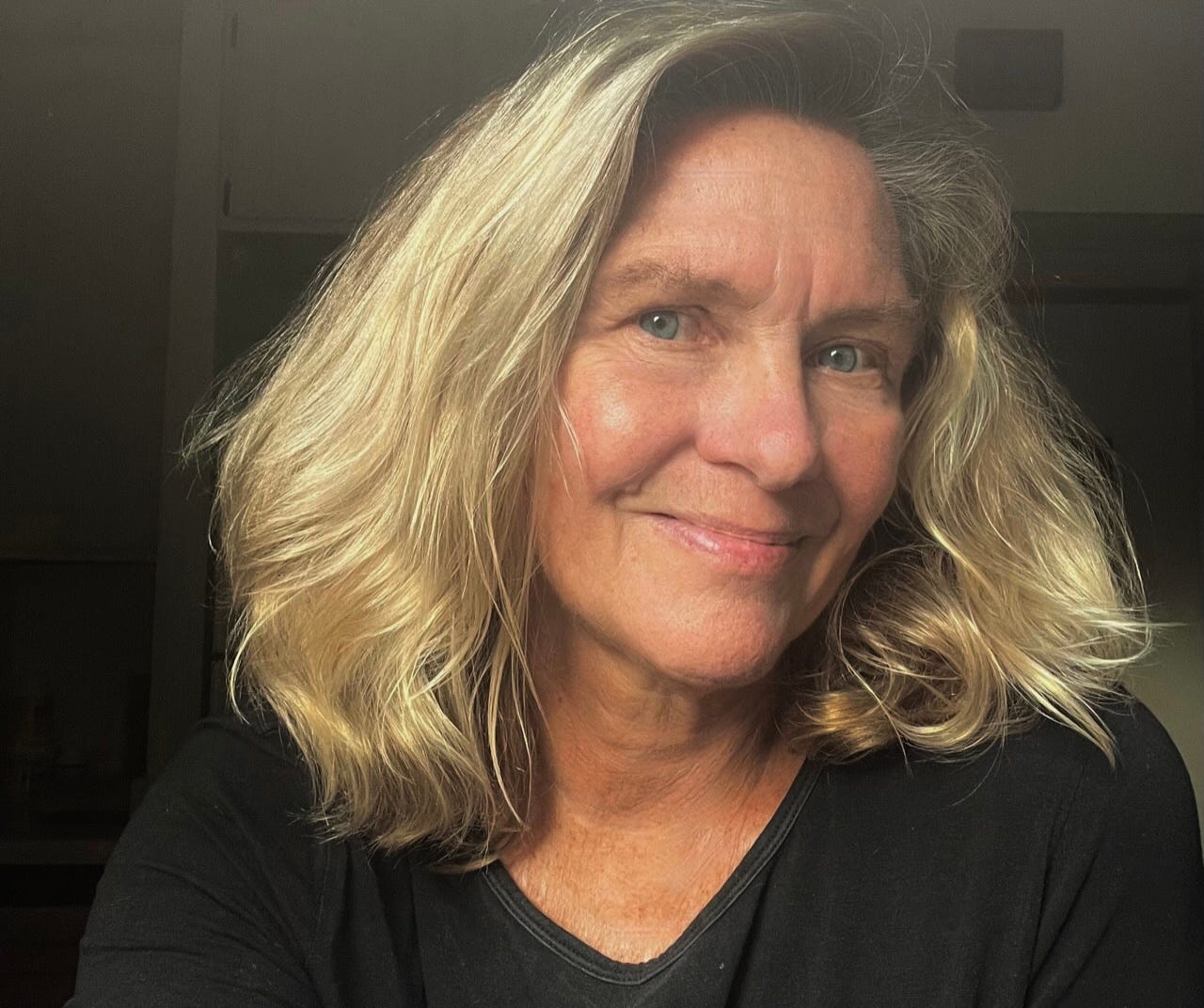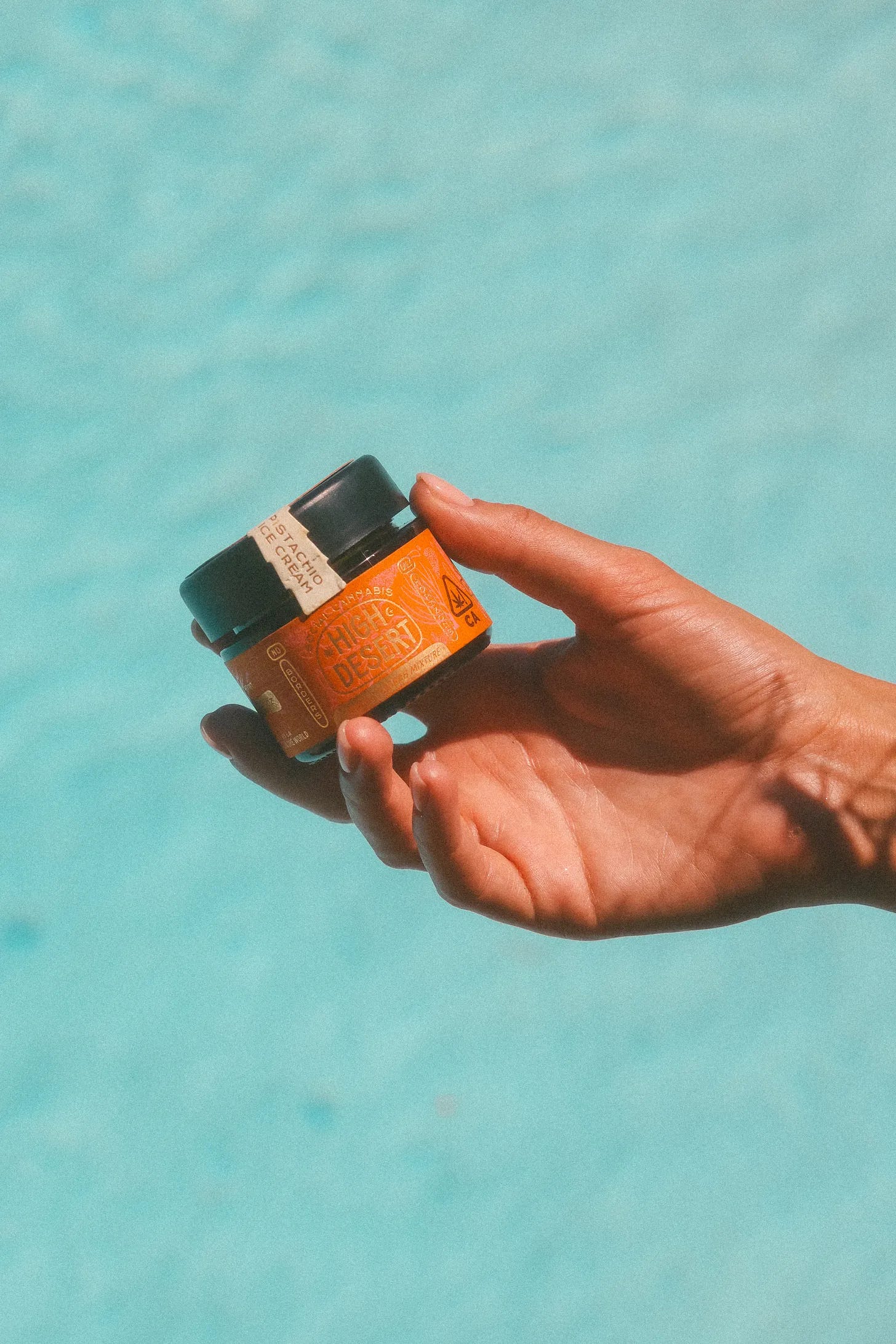Meet the Naturopathic Doctor at the Forefront of Medical Cannabis
UCSD clinician Dr. Michelle Sexton talks cannabis in pregnancy, pediatric medicine, and pain management; her beginnings as a West Texas midwife; & her many decades studying the endocannabinoid system
As someone who covers cannabis from a variety of angles, topics, geographic regions, et cetera, I get excited encountering someone who does big things in my neck of the woods, which is San Diego.
Dr. Michelle Sexton, my fourth guest on The Plant Lady, is well-known in the cannabis (and wider medical) world for her long-spanning research on the endocannabinoid system, her holistic practice that incorporates cannabinoid medicine (especially regarding women’s health), and her pioneering work with pediatric cannabis patients, among other things. These days, she’s a clinician at UCSD—she’s the first naturopathic doctor hired to work directly in the UC system. She also maintains her own holistic medicine private practice.
Speaking of pioneers, the University of California, San Diego, is also a trailblazer when it comes to cannabinoid medicine. The Center for Medicinal Cannabis Research at the university was established during the Prop 215 era, in 2000, following the passage of California State Senate Bill 847. The bill called for a program overseeing high-quality and objective medical research that would “enhance understanding of the efficacy and adverse effects of marijuana as a pharmacological agent.”
Since then, the Center has embarked on a number of important studies (here are some fairly recent examples; here is a list of scientific journal citations and studies), including clinical and pre-clinical studies about cannabinoids, some that include smoking cannabis, intended to provide evidence on whether or not weed has any medicinal value. As the linked-to article mentions, a lot of this research has been done with the Center’s neck stuck out–cannabis is still federally illegal. There are still significant barriers to accessing samples for study, and a lot of institutions avoid embarking on such study in the first place because the red tape is too difficult. Sexton and I discuss that in this podcast.
Anyway, it’s very cool that Sexton is clinically active at the university, considering this legacy and her work extend far beyond UCSD's bounds. The Plant Lady’s fourth episode is a conversation between Dr. Sexton and me, during which we trace her long career in cannabis (and wider holistic) medicine from her beginnings as a West Texas midwife who became interested in “systems” medicine. Which is to say she became interested in treating the whole body as an interconnected system rather than isolated symptoms or ailments. We also discuss her pioneering work in the early 2010s treating pediatric cannabis patients in Washington state, and the focus of her cannabis medical practice today, which is largely focused on addiction and pain management, she says.
Finally, we also discuss the very taboo and fraught subject of cannabis use during breastfeeding and pregnancy. As readers of this newsletter will know, I have decided to completely abstain during pregnancy. Since Sexton is a cannabinoid medicine expert and women’s health practitioner (not to mention a midwife), I wanted her take on things. We had a spirited and honest conversation on the topic that will probably piss off a lot of cannabis advocates.
In addition to the podcast, please check out Dr. Sexton’s Green Women’s Guide, a course on the endocannabinoid system and women’s health across all stages of life. Its goal is to teach women how to use cannabis as a tool to aid in reproductive health, postpartum, and wellness practices.
One final thing: this wasn’t the first time Dr. Sexton has been a source for me: an article of mine about pediatric medical cannabis use was published in a recent issue of Different Leaf, which featured her commentary. You can’t read it online because they keep their product print-only (which I kind of love and respect), but here’s a PDF.
A note because I cannot stop thinking about it
This week a 46-year-old man named Tangaraju Suppiah was hanged in Singapore following his conviction for aiding and abetting the trafficking of about two pounds of cannabis (1 kilo, which is double the limit for the death penalty in Singapore).
Malaysia Now first reported about his hanging this past Wednesday morning, which was rebuked by Richard Branson, the European Union, the United Nations, and other political and social entities. CNN reported a comprehensive follow-up.
I don’t think I need to go into detail about my thoughts and feelings on it. However, I will say it’s shocking and barbaric, known laws notwithstanding (not to mention our own draconian death penalty punishments in the United States, which I have never supported as I do not believe the state has a right to kill its own citizens, among other reasons). Without incriminating myself too much, two pounds is simply not a lot of weed, especially when you consider lots of people move around far beyond that every day, particularly in legal markets in the United States. If they were subject to the same punishments here in the U.S., I would know a lot of dead people, myself included.
Here are his execution portraits, shot by the prison as standard procedure the day before he was hanged (credit Kristen Han via Twitter). Rest in peace, Tangaraju. I hope you’re somewhere that treats you better than Earth did.
Other news from this week that upset me concerns Tara Davis-Woodhall, a U.S. long jumper who was stripped of her recent national indoor title and given a one-month suspension after a positive test for cannabis, the US Anti-Doping Agency (USADA) announced Tuesday.
I’m sure it also goes without saying I think this is dumb and draconian, not to mention hypocritical, something I wrote about at length when Sha’Carri Richardson was barred from competing in the Olympics due to a positive drug test two summers ago. That piece pretty much sums up how I feel about this.
Recently published by me or about me
For San Diego Magazine I talked to a few budtenders around San Diego to find out why budtending is actually a different kind of retail job–one that requires a higher degree of knowledge and specialization (and should probably be paid better, considering that)
For Cannabis Now (also in print), I wrote a breezy essay about the history of cannabis in pop culture, which was illustrated by the great Risko of Vanity Fair, Rolling Stone, and New Yorker celebrity portrait fame. This reminds me I need to ask him for a print!
NYC-based journalist and Cash Only 420 honcho Zach Sokol is doing a bang-up job syndicating his interview series–recently, this interview with me from last year was re-published on High Times, and now it’s on Beard Bros. Pharms for your reading pleasure, too.
And here’s the corresponding piece about Dr. Sexton and our podcast episode that my wonderful intern and production assistant, Melody Bathaee, wrote for San Diego Magazine.
Product recommendation: High Desert cannabis shisha
Partner content
High Desert is a cannabis shisha company based in LA with strong San Diego roots (the couple that owns it lived in SD for a long time, operating and working in various traditional shisha bars).
More a traditional cannabis smoker myself—I prefer joints and bongs, though I will be moving more to dry herb vapes once my child is born within the next month–I’ve discovered that shisha is actually a wonderful way to smoke weed, particularly because it’s so social. It’s an obvious vessel for weed.
High Desert has combined flavored shisha (the flavor pictured, pistachio ice cream, is also my favorite) with weed, something I’m usually weird about (I like the taste of weed, love it, even!). I was skeptical, but I actually ended up loving it, flavors and all, as well as the mellow resulting high. You can really just sit there and chief on the pipe, and the high never gets too heavy.
You can find High Desert at dispensaries around California and in San Diego at Torrey Holistics and Goldn Bloom.








